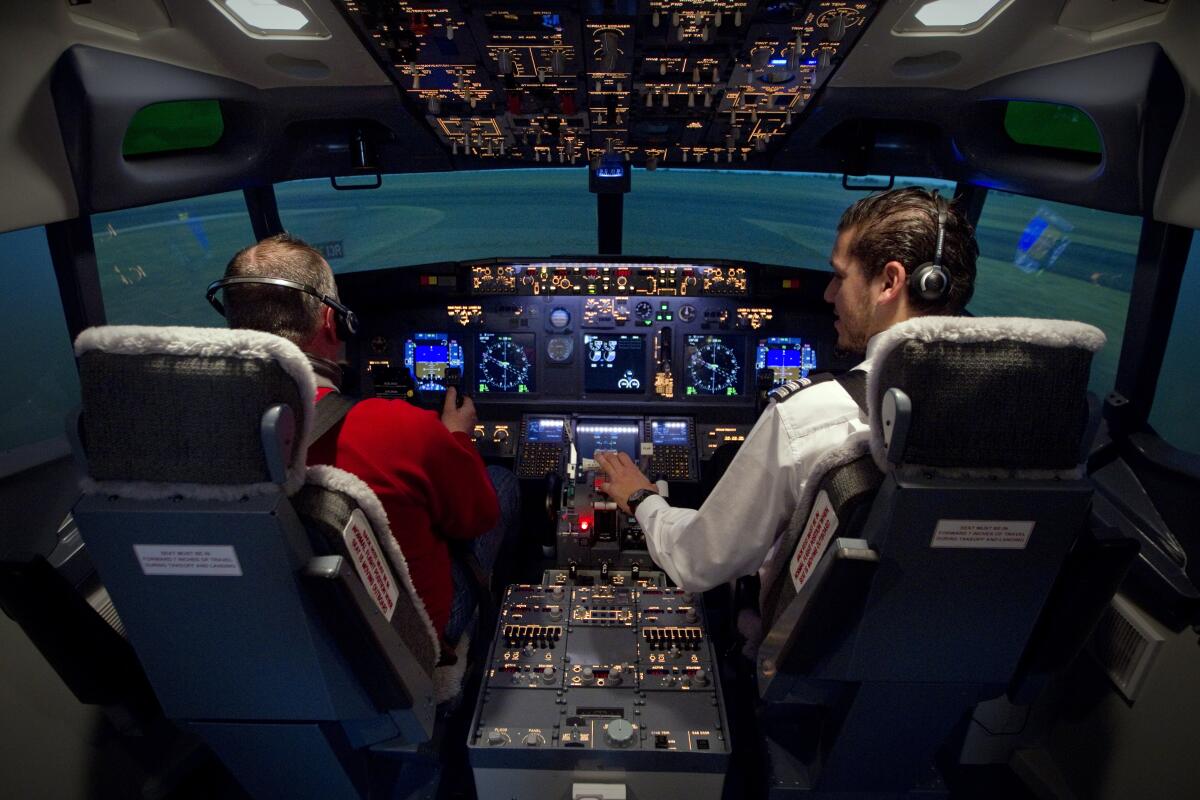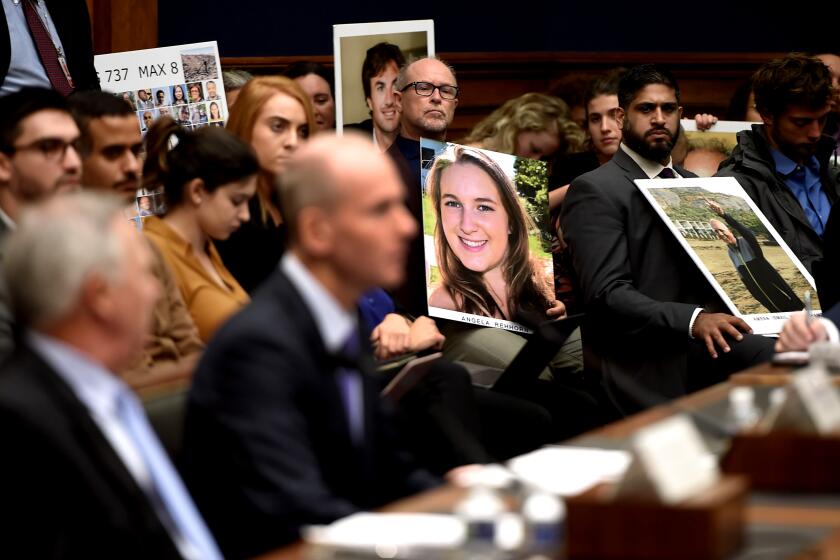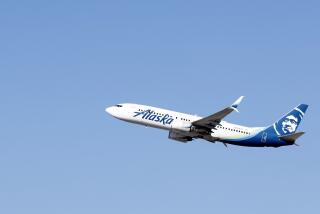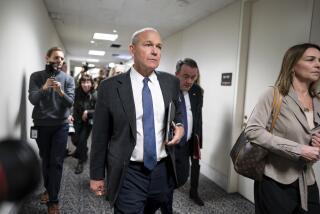Airlines scramble for 737 Max simulators after Boeing says pilots need training

- Share via
U.S. airlines are struggling to secure flight simulators for the 737 Max after Boeing said extra training will be needed for pilots before the aircraft returns to service.
There are only 34 simulators worldwide for the jet, creating a potential bottleneck as airlines vie to schedule training time for thousands of pilots and causing further delays to its return, even after aviation regulators lift the grounding.
Boeing said for months that pilots would only need to train on a computer in order to qualify to fly the Max, which has been grounded since March following two fatal crashes, only to reverse course earlier this week.
Among the three major airlines with Max aircraft in their fleet, Southwest Airlines said the company had three simulators that it ordered in 2018 with “minimal” work remaining until the Federal Aviation Administration certified them for use. It has three more set to be delivered at the end of this year.
Although they were not previously required, “we ordered the simulators so the pilots would have the option” of training on the Max model, a Southwest spokeswoman said.
United Airlines said it already had one working simulator, with three more set for delivery by March. American Airlines said it “continues to work with the FAA and Boeing throughout the recertification process,” but a company spokesman offered no details on simulator training for its pilots.
Part of Boeing’s original sales pitch to airlines was that the Max would not require simulator training. It was a factor in Boeing’s decision to update the 737 rather than design a wholly new aircraft, which led to the use of heavier engines and then a flight control system to counteract their effect. That system was later implicated in the crashes in Indonesia and Ethiopia which killed 346 people.
The FAA and other regulators are yet to approve Boeing’s proposed changes to that flight control system and to pilot training, which will be required before the Max is certified as safe and the grounding is lifted.
Boeing wants to rebuild confidence in the Max among customers and fliers and that likely influenced the company’s decision to recommend simulator training, said John Cox, a crash investigator and retired airline pilot.
A person familiar with the matter said Boeing decided to recommend simulator training after pilots participating in the recertification process failed to follow proper cockpit procedures and checklists.
Boeing will be hobbled by the 737 Max affair for years to come. Yet the board that oversaw this calamity is not being held to task.
Simulators cost between $6 million and $8 million each, and then another $400 to $500 an hour to operate because of labor and maintenance costs.
CAE, a Canadian company that supplies 80% of the world market for flight simulators, has been anticipating a rise in customer demand for Max simulators since November, said Hélène Gagnon, the company’s vice president for public affairs.
Sales and deliveries of Max simulators are doing well, Chief Executive Marc Parent said during a Nov. 13 earnings call. There had been five orders and nine deliveries in the first half of the company’s fiscal year — almost 10% of the 48 orders in the product’s history. Chief Financial Officer Sonya Branco said a similar number of orders and deliveries were expected in the second half of the fiscal year.
© The Financial Times Ltd. 2020. All rights reserved. FT and Financial Times are trademarks of the Financial Times Ltd. Not to be redistributed, copied or modified in any way.
More to Read
Inside the business of entertainment
The Wide Shot brings you news, analysis and insights on everything from streaming wars to production — and what it all means for the future.
You may occasionally receive promotional content from the Los Angeles Times.











